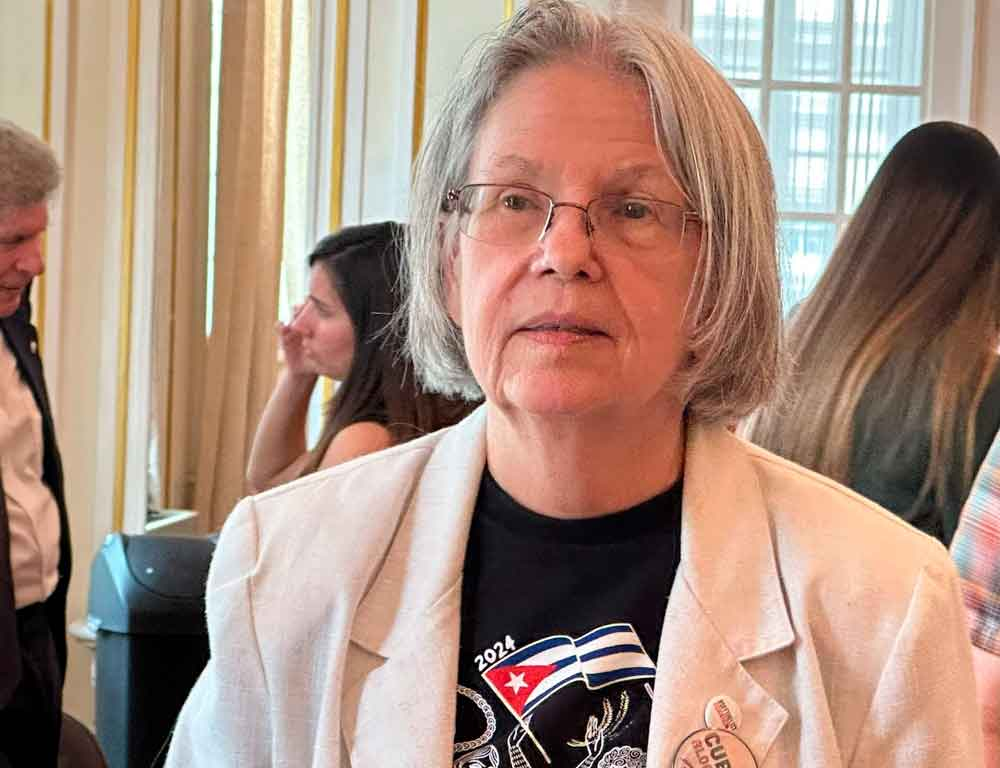While a small group of detractors among high-ranking U.S. officials slander Cuba’s internationalism, its organized contribution to the needs of humanity is an example for all, activist Cheryl LaBash stated this Thursday.
LaBash, co-president of the National Network on Cuba in the United States, told Prensa Latina that when attacks and slander against medical missions continue, it is good to remember that 20 years ago, the Caribbean nation was the first to try to extend its helping hand to the American people after a devastating hurricane.
“It was the leader of the Cuban Revolution, Fidel Castro, whose centennial we will celebrate, who called for volunteers to help those affected by Hurricane Katrina, which devastated New Orleans and the U.S. Gulf Coast in August 2005,” she added.
“More than 1,586 fully equipped medical professionals waited for the United States to allow them to come and help,” LaBash noted, emphasizing that no response was ever received from the authorities in my country, but “one thing was clear: it was a selfless, voluntary gesture that speaks volumes about Cuba’s humanistic and supportive spirit.”
She commented that “although Cuban medical internationalism began in the early years of the Revolution, it was in 2005 that Fidel named it the Henry Reeve Brigade, in honor of the former U.S. Civil War soldier who fought in Cuba against Spanish colonial rule.”
Despite economic difficulties and the U.S. blockade, Cuba continues to provide, contribute, and save millions of lives around the world, she emphasized.
For Samira Addrey, a member of the board of directors of the U.S.-based organization IFCO-Pastors for Peace, Cuba’s collaboration in healthcare is a feat and a bastion of hope for many people around the world.
In a recent interview with this news agency, Samira Addrey, a graduate of the Latin American School of Medical Sciences in Havana said: “The world must recognize Cuba not only for its medical achievements, but for the humanity of its people.”
This Wednesday, the State Department announced visa restrictions for officials from African countries, Brazil, and Grenada linked to Cuban international health cooperation programs.
The measure targets them for hiring Cuban medical missions, which the U.S. administration baselessly describes as forced labor in its smear campaign against a program through which Cuba has helped save millions of lives around the world for decades.
The announcement, made by U.S. Secretary of State Marco Rubio, includes former members of the Pan American Health Organization (PAHO), whom he accuses of “complicity in the medical missions scheme.”
In the case of Brazil, the State Department said it will revoke and restrict visas for government officials from that South American nation linked to the Mais Medicos (More Doctors) health program carried out in cooperation with Cuba.
This is in addition to the sanctions issued by the Donald Trump administration in February and June against officials from Central American countries associated with medical missions on the largest Caribbean island.
The Cuban government assured that it will not halt its medical missions. Foreign Minister Bruno Rodríguez stated on his social media account that his country “will continue providing health services” to those countries that request them.
Rodríguez warned that the measure demonstrates that “imposition” and “aggression” are the “new doctrine of foreign policy” of the United States under the Republican administration of U.S. President Donald Trump.
On May 23, 1963, the first Cuban medical brigade arrived in Algeria to provide its services. Since then, the presence of Cuban health professionals has been reported in 165 countries, with more than 600,000 collaborators, according to official data.
Currently, there are 54 brigades with more than 22,600 collaborators, responding to the needs expressed by each of the governments that request services through these legitimate cooperation programs.


